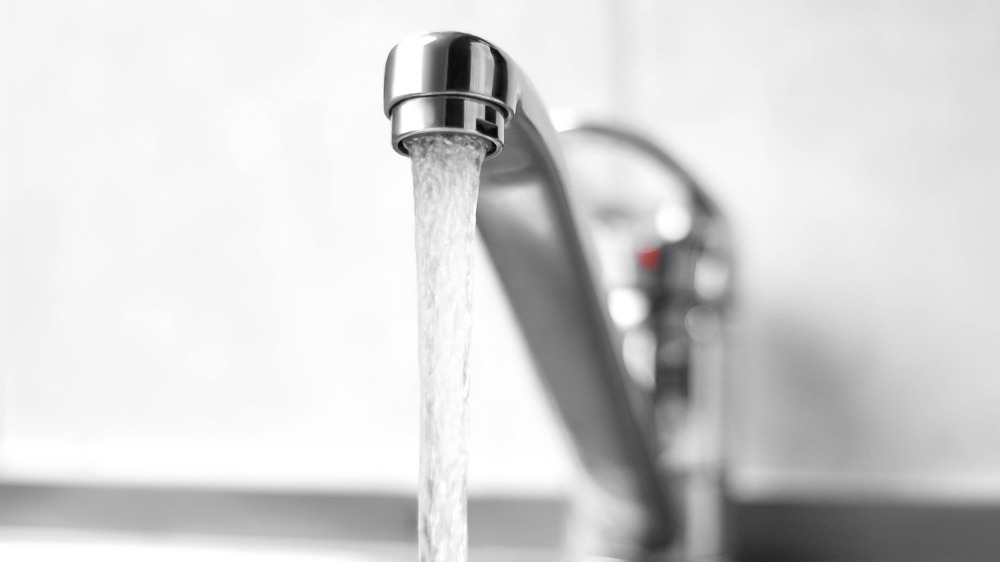When You Drink Tap Water Every Day, This Is What Happens
The advice to drink water is repeated enough that you may assume that the fluids seeping from our faucets would be safe for consumption. Yet, as One Medical mentions, we are inundated with advertisements for filters and various brands of water bottled and resold. However, they add that for most American adults, water (tap or bottled) doesn't contain an amount of pollutants that exceeds national rules. These rules, the National Primary Drinking Water Regulations, list the various amounts of chemicals allowed to contaminate water. Thankfully, though, nothing derived from fecal waste is permitted. In theory, then, drinking tap water every day would produce the same results as drinking bottled or filtered water, because both are water.
In practice, however, these regulations are only as effective as their enforcement. For example, the case of neglect that's dominated American news in recent years is the water crisis in Flint, Michigan. As the BBC recapped while covering the impending criminal trial of ex-Mayor of Flint Rick Snyder, the city switched its water source from Lake Huron to the Flint river in 2014 to save costs — but didn't actually treat the water it pumped to its inhabitants. As a result, 12 people died from a particularly deadly form of pneumonia called Legionnaires' disease. It should be noted that the water was reported to gush blue and yellow. If your water runs clear, it's because other substances aren't present in a significant amount, meaning it's probably safe to drink, as APEC Water explains.
America has a spotty record for enforced regulations
The real extent of how much our water infrastructure depends on a government to maintain it was made clear in the first months of the Trump Administration. NPR reported in January 2020 that Donald Trump rolled back water regulations set by the Obama administration during his early days in office; his administration cut federal protections for waterways, many of which fuel the drinking supplies of Americans.
However as the case of Flint and a 2020 piece by Vox shows, even with a broader federal role in water protection, the quality of tap water changes dramatically. In the piece, the importance of having clean water during the opening months of the coronavirus pandemic is highlighted. "If [these communities] don't engage in rigorous hygiene," Marc Edwards, the engineering professor who revealed the contamination of water in Flint, pointed out, "they're endangering themselves to coronavirus, and if they do, they're fearful of the water."
The Proceedings of the National Academy of Sciences reported in 2018 that 16 million cases of acute gastroenteritis could be traced to these nationwide failures to maintain clean water. For each year of the last 34 years, they estimate, nine to 45 million people have been affected. While APEC Water points out that the clearer the water is, the freer it is of alien pollutants stands, you still might want a to invest in a filter.

